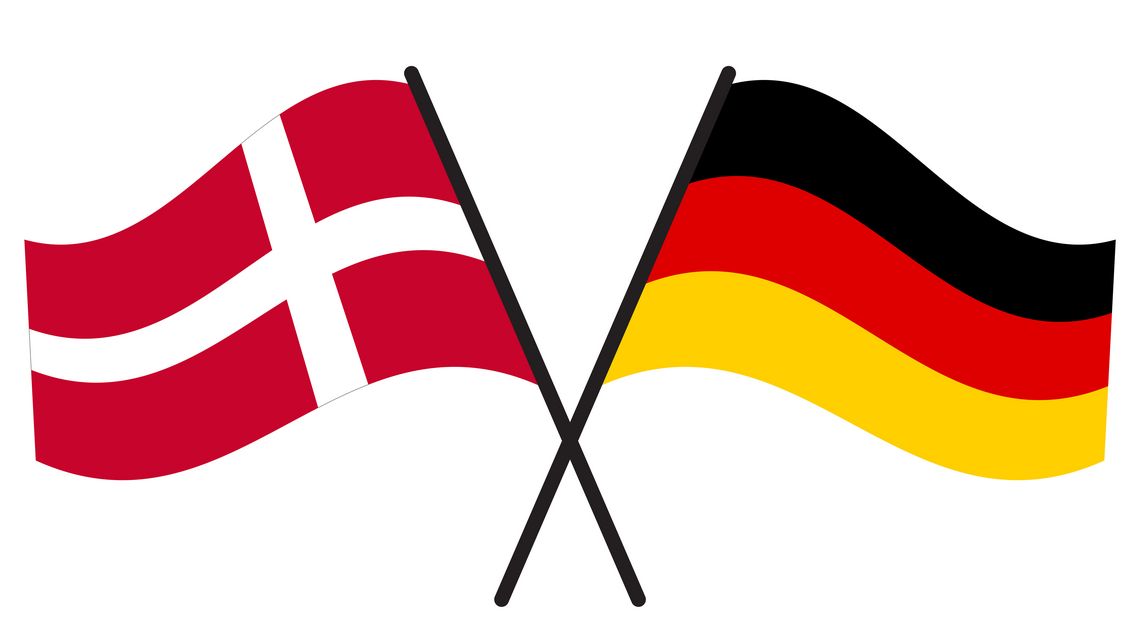
Danish and German Work Culture: Here Are the Most Important Differences
Even though Germany is right across the border from Denmark, there are important differences in the work culture between the two countries. Read here to learn about how to gain the best and most effective cooperation with your German colleagues and business partners.
How do I engage in small talk with my German colleagues? How important is hierarchy in the German part of our organization? In which areas are Germans culturally different from Danes?
These are some of the questions we’re typically asked by participants in our German cultural training sessions in Denmark. In order to answer them, we have teamed up with one of C3's Germany Country Specialists, Birgitte Ovesen.
Birgitte has lived in a number of European countries, including 12 years in Southern Germany. Using her years of experience working across national and cultural borders, Birgitte now advises companies within Global Mobility and HR.
1. What are the most important differences between Danish and German work culture and social convention?
By being aware that there are differences and respecting that, you’ve already made an important first step. You can’t just jump into anything with the expectation that since we do it like this in Denmark, it’s probably done in the same way in Germany. Because it probably isn’t.
Even though Denmark and Germany are neighbouring countries, there are vast differences between the two.
This includes differences in history, culture, mentality, and the way the country is structured, with Germany being made up of federal states.
Generally speaking, Germans are more formal than Danes. In Germany, formalities help build a sense of security in business relations, whereas in Denmark they are often based on trust. That is a difference which is reflected in many different situations and aspects; the way you work and the way you interact.
A concrete way that this formality is expressed is that in Germany you would normally use Sie (a formal word for ‘you’) when addressing a new acquaintance, and you would present yourself with your full name and position.
Once you’ve known your German business partner for a while and you’ve built a trusting relationship with them, it might be okay to address them as du (an informal word for ‘you’) – but it’s important that the suggestion of a less formal manner of address comes from the older one of you, or the one positioned highest in the hierarchy.
If you want to ask a German colleague to be on familiar terms with you, you should do so one-on-one rather than in a group. It touches on people’s personal integrity, and not all Germans like it.
Many young Germans are informal around their peers, but they address their boss as Sie, and the bosses also use Sie amongst themselves. You can also have colleagues who will address you as Sie during work hours, but as du after work. You might also run into intermediate solutions, where you address each other as Sie but use first names.
The written language is, generally speaking, more formal than the spoken one.
So, even if you and your colleague have agreed to an informal tone, you should stick to the formal tone in writing. Even if you said du in a phone call with somebody, you should follow up in an email with e.g. ‘Sehr geehrter Herr’.
2. What are the typical differences between Danish and German working styles?
Broadly speaking, it can be said that Germans are very correct, very polite, and very punctual. You’re not late for a meeting in Germany. Also, Germans are typically more detail-oriented than Danes, so if you make a 10-slide PowerPoint presentation in Denmark, you might use 20 slides in Germany.
Details and the many different pieces of information contribute to you presenting yourself as a professional who is well prepared. At the same time, it’s a formality, so you have all the content of a presentation in writing, just like you usually have the minutes of a meeting. The written documentation is typically more important in Germany than it is in Denmark.
Another difference is that, compared to Denmark, there is usually a more formal dress code in Germany. You wear the nice shirt at meetings, and you leave the worn-out jeans at home.
Of course, there are generational differences, and there can also be differences based on company culture and industry. For example, in the IT industry you can typically be more informal. Also, there are vast regional differences, so you cannot expect that what is accepted in Northern Germany will also be accepted in Southern Germany.
3. How can I ensure good communication with my German colleagues and business partners?
The very best thing would be to learn to speak some German. When you come from outside, it’s respectful to try to speak their language. Having at least a handful of pleasantries in German will open doors for you. Then, it will usually be okay to switch to English.
You have to be aware that many Germans don’t speak English quite as well as Danes. The reason for that is that English used to be taught very late on in German schools, and also everything you see on TV is dubbed. Historically, it was decided that no one should be excluded from understanding a movie. For this reason, Germans are not as used to hearing English as Danes typically are.
Once again, the IT industry can be an exception to the rule. English is more or less the main language in that environment, and the younger generation also typically speak very good English. Today’s university students speak English at the same level as young people in Denmark.
In a business context, most Germans prefer to move straight to an objective and professional discussion rather than engage in a lot of small talk. But if some small talk is appropriate, pick the topic carefully. As an example, talking about the Bundesliga is better than bringing up Germany’s national history, which can be a sensitive subject.
You should also be aware that the German communication style is even more direct than the typical Danish style. Many Germans are openly critical and are not afraid of a critical discussion – even if it leads to professional conflict. Such a conflict would be factual and based on sound arguments, and the discussion can be used to analyze the basis of the problem.
Be well prepared, have the details ready at hand, and be very precise about what you want to achieve.
You should also have a long-term plan for how to move on; what the next step is, so to speak.
Many Germans appreciate the security you get from having a perspective on what will happen if you agree on the initial terms. Nothing should be left to chance.
You can also be open about the price of a product and be honest in regard to the market and the conditions. In Germany people generally want the facts on the table. That way you will appear more professional and it will help you gain respect.
4. What role do hierarchy and status play in Germany?
Hierarchy is very strong and it plays a huge role. Also, status is extremely important. Whether you hold the title of manager or president can directly impact what office and car will be made available for you, as well as how your cooperation with colleagues will proceed.
Hierarchy is much more explicit than in Denmark, where everyone in a meeting can typically contradict each other and even contradict the manager. You would need some really sound arguments to do that in Germany. You might also have to accept that even if your idea is implemented, you might not necessarily be the one implementing it.
That’s also related to the fact that there is a different decision-making process in Germany. The organizational structure is much clearer, and the division of responsibility is very clear. After a meeting, it’s not unusual for the managers to withdraw and discuss, and then the decision is made higher up in the hierarchy.
In Denmark, you might be used to working under the philosophy ‘freedom with responsibility’ and you would find it natural to develop the task you’ve been given independently. A German employee would typically solve the task at hand, and then wait to develop it until she/he is asked.
So, if you enter the German labour market as a Dane with a lot of innovative and creative ideas, remember to ask your German boss about the framework, before you embark on something by yourself.
5. How does a ‘common’ German workplace work?
Most German employees have a 41-hour workweek.
An important exception is that many young women work part-time. A lot of women leave the workforce for a couple of years after having kids and when they return, they typically work fewer hours than before. That means they have a lot of work to do in the time they have at work. That leaves less time for small talk and less room for socializing because they have to get home to pick up their child from daycare.
On Monday mornings people like to discuss the weekend’s football match, so it’s a good idea to keep up to date on that topic! Other than that, colleagues usually stick to a formal tone during weekdays.
Less time is spent at the coffee machine compared to Denmark, and you don’t sit with people from other departments in the canteen – let alone mix with different hierarchies from other departments. Maybe the manager eats lunch with his own department, but you don’t go and have lunch with the manager from another department.
If you, as a Dane, enter a German company, start by having a talk with your German colleagues about their expectations and how they work. That way you’re listening, you’re engaging, you’re showing an interest in what they do and in how their workday looks.
Listening to your colleagues and adopting a curious and investigative approach gives you the best basis for cooperating with your German colleagues – and across cultures in general!
A few more things to keep in mind
Remember that Germany is a big country with a diverse history, which includes recent history, so there can be vast regional differences, as well as cultural differences between different generations.
The Germans you meet each have their own personality and their individual mix of cultural influences. This article offers some general takes on how German culture differs from the Danish culture, but remember to use your own observations, ask good questions, and always be prepared to adjust and nuance your cultural knowledge!
Learn more about how to ask good questions in a culturally intelligent way in our article here.
At C3 Consulting we believe that all cultural understanding begins with self-understanding. So, begin by digging into your own cultural background so you have an informed basis for finding differences and similarities with other cultures.
Need inspiration on how to sharpen your cultural self-understanding? See our article here.
Where to go from here
Do you want to learn more about how to ensure good cooperation with German colleagues and business partners? Read about our country-specific cultural training here or contact us for a chat about how we can address your need for German cultural training.
Want more inspiration for your cross-cultural work? Follow us on LinkedIn – and sign up for our newsletter using the form below.

